Speech therapy (ST) includes the assessment, diagnosis, treatment and prevention of communication and swallowing disorders.
Speech therapists work to assist with functional communication for a variety of patients including, but not limited to, those who have neurological disorders and other complications affecting speech / effective swallow:
- Parkinson’s
- Stroke
- Dementia
- Multiple Sclerosis
- Cerebral Palsy
- Traumatic Brain Injury
- Alzheimer’s
Our speech therapy team works with patients so they can communicate effectively and express themselves in daily life. We also help patients by evaluating swallowing deficits and collaborating with physicians, nursing staff and caregivers to determine the safest textures for eating and drinking.
Assisting caregivers in the care of our patients is highly important to us as we consider it to be part of the treatment plan. If an individual is not able to achieve independence in communication, speech therapy can offer education, counseling, resources and strategies for both the individual and his/her family for the most effective method of communication to improve quality of life.
Treatments may include:
- Dysphagia: Strategies for safe swallowing
- Tracheostomy / Passy-Muir Valve
- Language Impairments of Expression: Receptive and Expressive
- Motor Speech Disorders: Dysarthria (slurred speech) / Apraxia
- Voice: Vocal quality and Breath support
- Cognitive Communication: Assessment and Retraining
- Attention, Memory, Cognitive Retraining
- Articulation Disorders
- Stuttering
- Hearing
- Assessment / Training for Communication Modalities (Alternative communication devices)
Our speech therapists are certified in Lee Silverman Voice Treatment (LSVT®) targeting improved communication for patients with Parksinson disease. We also have trained therapists who work with Interactive Metronome.

